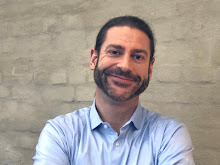Fool’s World Map
The world is a very large place. And an unknown one – at least to some of the people living in it. I personally do not fail to remember some of the most pronounced questions I have encountered so far in my travel life, such as:
- “What language do you speak in Germany?”
- “Is Syria next to Siberia?”
- “Austria does have the kangaroos, right?”
Exactly those kind of questions served as an inspiration for a guy from Japan. While in Texas, U.S.A., he was asked one day: “How many hours does it take to go Japan by car?” Amazed by the ignorance of the questioner, the idea for a blog project emerged in him. So he decided to collect the unusual mind pictures that fools have of the world and visualize them accordingly.
This undertaking is – in my opinion – one of the greatest and most ingenious blogs of all times, and he did a marvelous job. The project started in 2004 and was finished, with the support of more than 200 fantastic comments of authentic or imaginative fools, in June 2005. Meticulously documenting all those annotations and following up on the changes in a physical way, this Japanese guy has created an absolutely unique documentation of the obscurities and mental precipices that hide behind the curtains of globalisation.
It was a truly staggering and highly rewarding experience to monitor the continuous alterations being introduced over time. But also the final result leaves nothing to be desired in this applaudable undertaking.
This is the Fool’s World Map in its ultimate and complete stage (click to enlarge):
For several months, it was not available online – but now it has reappeared in style:
Take your time to browse through the comments one by one, some are mind-boggling, others are simply hilarious. Just let your imagination flow towards what kind of mind set must stand behind them.
And eventually, sit back and enjoy a look at the final result of a world how fools they picture. You will be amazed, I can guarantee that.
Enjoy!
Andreas Hauser






